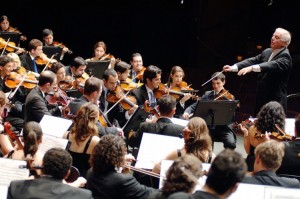Whisky is Liquid Music
Listening to recordings of Daniel Barenboim, the Argentine born, Israeli pianist and conductor giving the Reith Lectures in 2006, I was reminded of how classical music and whisky resemble one another, both in their construction and in our relationship with, and to, each.
Whisky and music both have notes ~ whisky has flavour notes and music has sounds notes, and both are experienced over an organised period of time.
Both experiences involve the active participation of the ‘consumer’ ~ absorbing music into ones body as sound vibrations penetrate the ear, and absorbing whisky into the body as tiny vibrating particles of matter ~ liquid molecules, penetrate the mouth and aroma compounds penetrate the nose.
Both experiences are extremely subjective as we bring our personal associations to each. We experience the true substance and simultaneously we experience our subjective experience of it.
Both have past, present and future having being build on what went before, engaging with what just precedes the experience. In music it can be the silence before the first note and with whisky it can be the very air around one ~ whither inside or out. Both experiences are built on the skills and experiences of the past ~ building up the physical quality of the musical instrument, building up the quality of the fermentation and so on, learning from experience how to improve.
Both experiences are vertical as well as horizontal as both build on the memory of what has gone before, ones association with piece of music or a dram. Where one heard the music, where one tasted the whisky. Both evoke memory. Both stimulate emotion. And, this is an interesting point ~ can whisky and music evoke emotion? Or do they stimulate latent emotion we already have?
Both classical music and malt whisky used to be just ‘part of life’ and now are regarded as ‘experiences’ ~ that mainly only the monied can afford.
Ones enjoyment and appreciation of both whisky and music grow in relation to the more one knows about them. For example, having tried many whiskies and being aware of the ‘journey’ of the dram, one is more able to separate ones sensations upon drinking the whisky and therefore be aware of the physical construct of the dram. One can comprehend the experience of the dram in a way that is already familiar. It is the same with music. If one understands or knows the construction of the piece of music or is familiar with a style of music, one has greater awareness and is better able to ‘map’ ones experience and hopefully relate more fully to it.
Melody and harmony in music create a specific kind of tension. This can be found in the creation of whisky ~ there must be a balance between the notes, strengths and power of the new make spirit with the maturation. The tensions when balanced are what create a wonderful dram, and a wonderful experience of music. The magic of the universe is such, that, if the notes and movements are right, the energy flows naturally and something greater than the sum of it’s parts is birthed.
Mr Barenboim says the lesson to take from music is that life must combine transparency, power and strength. All notes must be played at their power, but to form a great chord sound the various players must be heard together, in a dynamic tension that holds all sounds as equal. This creates great strength of sound. If this does not occur, you have great power from one section overwhelming another so there is no tension, and therefore no strength. Music will be totally uninteresting without this ~ it is the same with whisky. If the notes of peat, or cereal or vanillin are too powerful and overwhelm the other flavour notes, you have a heavy, flat whisky . If it does not allow the other notes to be heard it has no strength, only power ~ and this does not express the totality of of a great whisky.
Music shows the inevitable flow of life, as does whisky, both are experienced in a linear fashion albeit both vertically and horizontally. The experience of both is constant change. One cannot hold the sound or the taste any longer than it is meant to be held. This is like life ~ no matter how we wish for something to last longer or to hurry and pass, it will take as long as it takes!
Slainte!
And thank you to Daniel Barenboim for sharing his wisdom in the great Reith Lectures.


